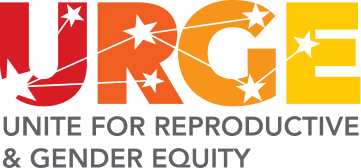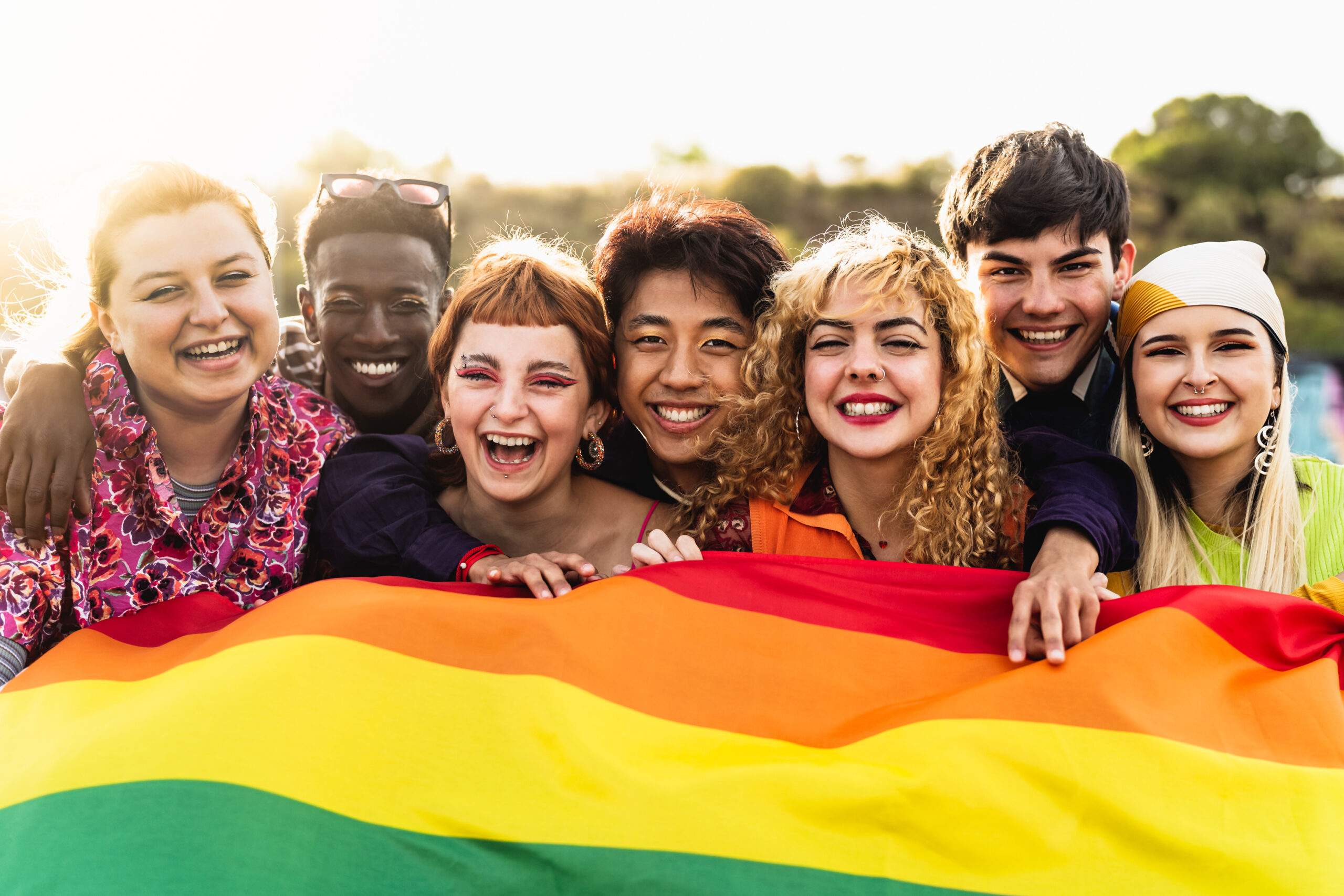Meet Georgia Dusk: A Narrative Project that is Preserving Black Birth Workers Stories in the South.
When I think about some of the most transformative work happening in the movement for reproductive justice, I think about two memory workers, Dartricia Rollins and Ashby Combahee. Since 2021, Rollins and Combahee started Georgia Dusk: Southern Liberation Oral History Project.
Georgia Dusk is an intergenerational counter-narrative project that uses oral history to actively challenge the mainstream depiction of Georgia’s politics and the southern liberation movement. The project reclaims the historical legacy of liberation movements in the South and documents ongoing grassroots movements led by Black queer and feminist people. By preserving and uplifting the narratives of Black Southern birth workers, they position themselves as authorities of their own stories, helping shape the historical memory of Georgia.
Georgia Dusk has meticulously documented and analyzed the often-overlooked contributions of Black birth workers to the Southern liberation struggle. This conversation delves into their work, methodologies, and the impact of their research in preserving and sharing the rich histories that have shaped Georgia’s liberation movements. The following interview was edited for grammar and amended for brevity.
Victor Ultra Omni (They/Them): When did Georgia Dusk: Southern Liberation Oral History Project begin? Can you each tell me a little bit about yourselves and the story of how you came to be collaborators on this project?
Ashby Combahee (she/they/he): We started chatting about the idea of an oral history in spring/summer of 2021. I remember a very specific moment with Dartricia at the feminist bookstore, Charis. I began thinking about how Charis as a place that has brilliant feminists who come through these doors every single day. There’s so much rich history. I want to be able to access that history.
I asked Dartricia “Wouldn’t it be cool if there was like an oral history gathering all the wisdom of people who’ve come through this place?” I had just started at the Highlander Research and Education Center a couple of months before that. I was starting to understand the history of some of these queer-led organizations, particularly Southerner’s on New Ground(SONG). Then it blossomed to something else.
Dartricia Rollins (She/Her): Ash asked if an oral history project would be something I would be interested in. I responded, “I don’t know what oral history is, but yes.”. We started out really broad, and then decided to narrow in around reproductive justice, in part the reason we started to narrow in on reproductive justice is, because I was at that time on the board of directors of ARC Southeast in addition to my job at Charis.
During that time, there was the Dobbs v. Jackson Supreme Court decision that was a growing concern. For the first time, it felt like Roe v. Wade was about to be overturned. We decided it was important to document our history and also capture some current stuff around reproductive justice and reproductive rights.
VUO: What was the inspiration for the name of your project?
DR: I was reading Panther and the Lash which is a collection of Langston Hughes poems. We were trying to think of a name that was broader than Black feminist oral history project, so that we could still explore some of the other themes. We were trying to find a name that was big enough to hold our scope and we wanted it to be poetic, honestly. I started opening up all the books in my house. I was reading that book and landed on the Langston Hughes poem titled Georgia Dusk.
When we were looking online and searching the name Georgia Dusk, we came across the Jean Toomer poem, which I love. I personally consider poets to also be memory workers. Oftentimes, poets are documenting history and the things around them as they see them. And I often go to poetry when I’m thinking about historical events. Our ultimate decider was Spelman College Archivist Holly Smith, who also liked the name.
AC: It certainly has certain poetic illusions, right? By documenting history, often dark history, we feel like we’re in the belly of the beast. We are also looking back on the end of things [Roe V. Wade] in order to strive for something new. This idea of dusk captures that there’s a closing happening that we’re that we’re kind of transitioning to the next stage. Both poems, give great illustration of the culture and the spirit of Georgia, which actually translates quite well. It translates generally of the deep South, which is where both Dartricia and I are from. I’m from Louisiana and Dartricia is from Florida. This project had to be really rooted in a certain in a Southern storytelling tradition, so poetry frames how wanted to build these narratives.
VOU: That’s so beautiful. And I really agree that there was already a poetics to the work. Politically, spiritually, ideologically, what do you each bring to Georgia Dusk?
DR: We were both bringing in Black feminisms. I was also moving from being more than just an activist towards being an actual organizer. My politics were starting to orient more towards working-class struggle. This is why I was drawn to bringing in the history of the Highlander Center and Southerners on New Ground (SONG). The interracial working-class element of their organizing was real and exciting for me.
It was important for us to think beyond just the people who lead the organizations and think about the class elements within organizations. Other politics I bring are Marxist-Leninism. That is something that I like to name explicitly, always. Also, this literary element is very much always in the spirit of the work that I do.
AC: This year marks a decade since I started working in libraries and archives. I’ve been doing memory work in many different contexts and environments. Right before Georgia Dusk, I was doing an oral history project that was part of a larger archival fellowship with the Luminous Working Collective. With this collective, it was the first time I really got to do full life oral history. I was interested in the formation of political consciousness and political identity. I was [also] curious about the development of how people look at all these political, social events in their lives, and how it shapes them as an organizer. Yes, some of that background is as a memory worker. But also, I was shifting into becoming an educator. Oral history is also within the tradition of popular education getting people to just reflect on their lived experiences.
I also started to think about this project too as a movement elder in-training. To be a movement-elder, you need to be really good at storytelling if you are going to build a movement out there. Your storytelling needs to be motivating and sometimes, that’s what oral history is able to provide.
VUO: Our movements are still struggling with is what the Louisiana Abortion Fund has called an anti-southern sentiment. This false belief that the South is somehow backwards and the only place where we find racism, sexism, and threats to reproductive justice. Can you continue to talk about why you chose to ground this project in the South, and in Georgia in particular?
DR: It was important for us to explicitly document organizing and cultural work as a means for educating future organizers and for educating ourselves. Most importantly, we were most concerned with all of the history that we were missing. This [project] will give us an opportunity to learn and learn from others. From 1st person, narratives.
Doing this work in the South was our number one [priority]. Oftentimes, when things like Roe v. Wade and abortion restrictions happen, folks abandon the South. With Reproductive Justice, we think about the founding of I know dozens of other reproductive justice organizations that are here. It was Sister Song. SisterSong is in Atlanta, in the South, and I know dozens of other reproductive justice organizations that are here. It was significant that all of these reproductive justice organizations are concentrated here in Atlanta, here in the South and are leading the work.
AC: I had read an oral history Byllye Avery. It was published in the longest running multicultural lesbian literary journal Sinister Wisdom and was part of a Lesbian feminist South Archive Project.Byllye had started an abortion clinic in Gainesville, Florida that had been her start. She was talking about what it was like being a Black woman doing this work in Florida amongst a bunch of white women. She talks about coming to Atlanta, where she then hosts what ends up being the Black Women’s Health Imperative.
There was something very particular around Byllye talking about Atlanta. When I read it, I thought it was my experience, too. This city feels so special, especially as someone who hasn’t been raised here but has been calling it home for six years. Now, much of this project feels like paying homage to the pathway that’s been laid and the struggles we have around the Black leadership class in this city. This particular land and place seem so significant to that history.
VUO: Can you tell me a little bit about how this project features black queer, and trans people? What can you learn about reproductive justice when you center black gender-expansive people?
DR: We have a few participants who identify as non-binary and/or trans. Two oral histories in particular stand out, and that’s Khye Tyson who does a lot of reproductive justice work around family planning, fertility, and as a doula. Khye narrated some of the things they have that have come around people wanting to give birth and have abortions in a more traditional way. It was our first narrative that contended with the fear that [non-binary and/or trans] people have around giving birth, and their specific obstacles.
I met Khye doing a Trans Reproductive Justice event at Charis where they were supporting families, with fertility, support, and access.
Another narrator who really stands out is Bianca Campbells’ oral history. Bianca shifts us away from biological parenting and talks about what relatedness or parenting means to be in queer relationships, what it means to parent or be an auntie to all these different children. These non-traditional ways of raising up children and centering the children who are already here as a reproductive justice practice.
When we were coming to this project. It was important for us to embody the tenants of reproductive justice. Not just the right to have a child and the right to not have a child, but bodily autonomy and parenting in safer and sustainable communities. This is what our gender expansive [narrators] bring to the conversation. That’s what I really got from Bianca’s [narration] in particular, in the way that they care for children and the way that they think about children, parenting, and community. It was incredible.
AC: There’s a journey that I have gone through, too, by doing these oral histories. As a person wanting to parent at some point, really interested in birth work, and also concerned as a trans masculine person who’s undergone gender transition of how do I show up as a parent?
That looks different now that I’ve undergone certain transitions. Listening to Bianca’s oral history was really healing for me, and I think showed a lot of expansive possibilities. How do we show up in community and families that look different than the ones we were raised in? I allowed for me to dream and vision of new possibilities in the way that I want us all to be able to have.

Victor Ultra Omni, M.A. (They/Them), is a PhD candidate in the Department of Women’s, Gender, and Sexuality Studies. Their dissertation, The Love Ball: A History of New …
More By This Author

